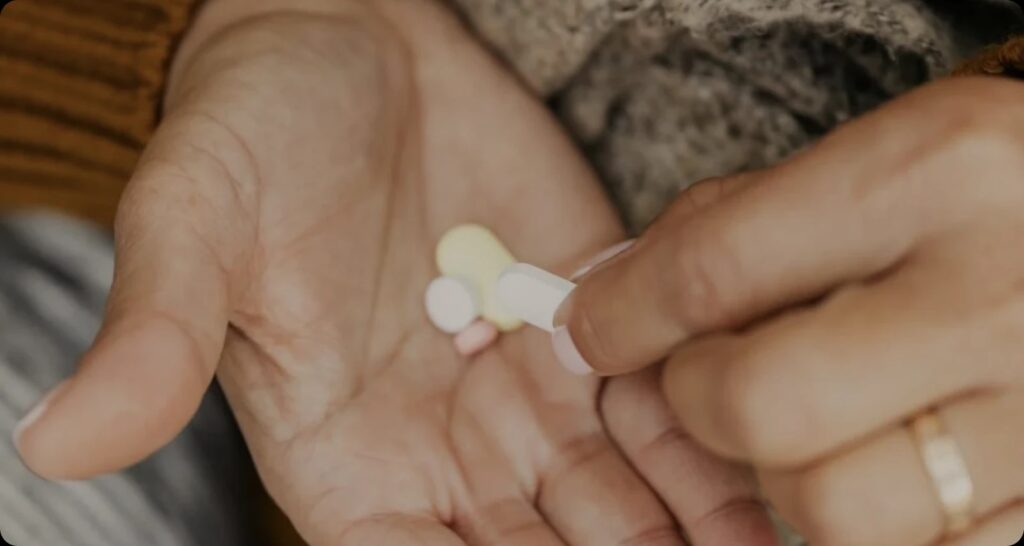Experts: Surge in depression rates among mentally ill points to systemic flaws, not overprescription, or overmedication alone
Study cautions against oversimplifying the mental health crisis, pointing to systemic flaws, not medication itself, as the real driver behind overprescription and rising depression rates.
— Last week, RFK Jr.’s MAHA reported overmedication as a key factor in children’s mental health decline, raising headlines in the media.
At the same time, a new study revealed that children’s mental health is actually highly affected by technology use. According to health industry experts, psychiatric overmedication is linked to a deeper, underlying cause of America’s mental health crisis.
“First of all, we shouldn’t add to the panic — medication is not causing the mental health crisis as it’s often portrayed,” says Dr. Hannah Nearney, Psychiatrist and Founder of Anchor Psychiatry Group.
“Overmedication happens when the system fails — not because the science is wrong, but because the way we manage and deliver care is flawed. Blaming the medicine distracts from the real issue: people aren’t getting the time, attention, or access to the range of therapies they need.”
In May, the CDC revealed that more than 1 in 10 adults take antidepressants. Despite that, the prevalence of depression among the U.S. population has increased by 60% in the past decade.
In the U.S. psychiatry system, prescribing two or more medications at once is common. The duration of use is also problematic — the average U.S. patient remains on antidepressants for 5 years, while clinical trials for such typically last 8 weeks.
“Patients may be prescribed multiple drugs at once in a bid to improve their symptoms, or to alleviate side effects from the initial medications,” says Dr. Nearney.
“Whilst in some cases this can be clinically appropriate, this runs a greater side-effect burden risk for the patient to bear and we still know far too little about the effects of combining psychotropic medications in the long term.”
There are several concerns about the negative effects of psychiatric overmedication.
“Overmedication is a problem not only because the root cause of the illness remains unaddressed, but because patients may experience side effects — from common chronic fatigue, weight gain, and sexual dysfunction to severe cases of serotonin syndrome, neurological disorders, and years of dependence or withdrawal symptoms,” adds Dr. Kultar Singh Garcha, NHS General Practitioner and Global Medical Director at Flow Neuroscience, a healthcare company that focuses on transcranial direct current stimulation (tDCS) therapy-based wearables.
Dr. Nearney notes that many also suffer due to misdiagnosis, as the U.S. healthcare system incentivizes short, high-volume appointments due to insurance reimbursement models and staffing shortages, with psychiatric consultations lasting 15 to 20 minutes on average.
“It is rarely enough time to understand a patient’s full psychological and social context. In such circumstances, psychiatrists are often pressured to prioritize quick symptom management over complex long-term treatment,” says Dr. Nearney.
Treating depression with medications alone may not be effective for several reasons. In fact, up to 30% of depression cases fail to respond to at least two antidepressants, highlighting the need for alternative therapies.
In those cases, healthcare professionals use evidence-based tools like cognitive behavioral therapy, light therapy in cases of seasonal depression, neuromodulation techniques, and prescribe patients a healthy diet, sleep hygiene, and physical activity if applicable.
In terms of neuromodulation techniques, tDCS is an effective, convenient, and well-tolerated neuromodulation treatment used in many countries—yet despite strong evidence from the U.S. and abroad, it still faces a lengthy wait for FDA approval.
“It might seem like the current RFK Jr.’s approach is to blame medications, but in reality, it’s blaming science. MAHA says polypharmacy is a problem, yet while some evidence-based treatments like psychotherapies are available, access to others is limited due to lack of FDA approval. It highlights the gap between research findings and clinical availability in the U.S.,” says Erin Lee, CEO of Flow Neuroscience.
Erin Lee shared that their device for depression treatment received FDA’s Breakthrough Device Designation nearly three years ago, but the full approval has been ongoing for the last 2 years.
When it comes to neuromodulation, spinal cord stimulation and peripheral nerve stimulation devices, for example, are already FDA-approved for chronic pain treatment. The agency has not yet accredited tDCS devices, a form of non-invasive brain stimulation therapy, for treating depression.
In contrast to drug-free devices, counseling is a standard and approved way to treat depression. However, less than 40% of the U.S. adolescents and adults with such a condition receive therapy from a mental health professional due to the flaws in the country’s healthcare system, experts conclude.
About Flow Neuroscience
Flow Neuroscience is a healthcare company that focuses on tDCS therapies and devices. In 2016, it was co-founded in Sweden by Daniel Mansson, a clinical psychologist, and Erik Rehn, an engineer. Erin Lee joined as CEO in 2022, having previously worked at Google, Uber and Babylon, and the company is now based in the UK. Flow is the only at-home medical tDCS device with clinically proven effectiveness in treating depression. It is not only used by the National Health Service (NHS), but also available and has passed regulations in Europe, Norway, Switzerland, and Hong Kong.


